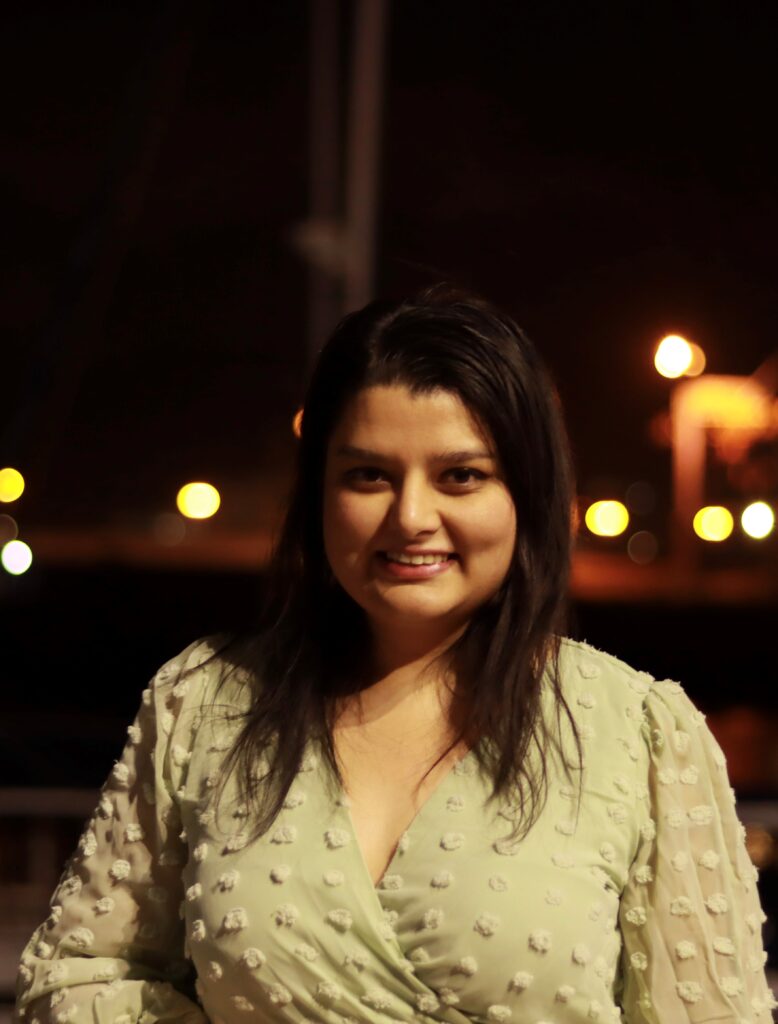
Home > Dr Monale Dahale, Project Engineer, The National Composites Centre (NCC)
Dr Monale Dahale, Project Engineer, The National Composites Centre (NCC)

“I studied my first degree in fibres and textile processing at the Institute of Chemical Technology in Mumbai, India. I moved to the UK in 2017 when I joined Ulster as a student and a PhD candidate, as well as a Marie Curie early career researcher. During this time I worked on an EU Horizon 2020 Iconic Project to improve the crashworthiness of composite transportation structures. It was a very interesting experience because usually PhD candidates work on small projects with few researchers, but the Marie Curie fellowship gave me an opportunities to work closely with researchers from many other universities and industries across the word, such as German Aerospace Centre, University of Limerick, University of Patras and Fiat in Italy where I also spend one month for a secondment. I feel very fortunate to have received input and feedback from all these external collaborators.
In 2020, I left Ulster University to take on a research contract at the University of Huddersfield. I didn’t have much flexibility when choosing my job after my PhD due to my visa status: I had to find another contract in the UK when I finished my Marie Curie project, otherwise I would have to leave the country and not return for a whole year. During my time at Huddersfield I worked on a project in collaboration with a company called Camira Fabrics Ltd, on developing sustainable material solution for fire retardant wool fabrics. I re-joined Ulster University in 2021 for a post doc position working on a project led by Artemis Technologies to develop hydrofoil based ferries. My role in this project was to develop near-net-shaped 3D woven preforms for hydrofoil applications and to improve the performance of 3D woven composites for maritime applications by architectural modifications, damage tolerance, impact resistance of 3D woven composites structures for hydrofoils.
I joined the EPSRC Future Composites Manufacturing Hub after receiving a Hub Researcher Network Award in 2022, which was jointly applied with the University of Nottingham. The project is on manufacturing and modelling of variable thickness in near net-shaped 3D woven composites for complex aerospace structures. This project is very important for my personal development because unlike other projects where I only work on pre-defined tasks, I can take a lead on this project and manage the progress and the finance. There aren’t many funds and awards available for PhD students and postdocs to work independently so I really appreciate the opportunity.
My father is the most influencing role model for me. He’s an engineer himself and I grew up seeing him make and break things which inspired me very much to pursue a career in engineering. I also want to acknowledge Dr Lisa McIntyre at Heriot-Watt University who offered me research internship opportunities in her group during the second year of my bachelor’s degree. I travelled from India to take this internship and it was a very challenging experience for me, but the way she treated me and moulded me made me want to do research. My supervisors and mentors at Ulster University, Prof Prof Alistair McIlhagger,Dr Edward Archer and Professor Eileen Harkins Jones have all provided me great support and inspiration through my study and my career and have helped me to grow into an independent researcher. A special mention to Roy Brelsford at Ulster University for always inspiring me.
The first challenge I encountered after moving to the UK was to figure out how to communicate with project partners effectively, and also the cultural shock. But people have been very friendly and welcoming, which has helped me a lot. It can also somethings feel daunting to be a woman in a heavily male-dominated society, but I have taught myself to be confident about my abilities and be very determined, and fortunately I have been treated very well by my colleagues, so that I never feel discriminated. I think it’s very important to promote females in engineering and ensure equal career progression opportunities because the number of male academics is still much higher compared to female academics. Gender equality is not the only issue, and other characteristics such as race should also be considered. Everyone should be treated the same regardless of their background. I’m very keen to join Ulster University’s EDI committee and become an EDI ambassador. I’d love to promote STEM subjects as a career choice to young female engineers, and school girls in Northern Ireland and India, and I want to encourage them not to feel daunted by a male dominated industry. Just keep working hard and do the best you can without worrying about the outcomes if you are really passionate about your subject.”